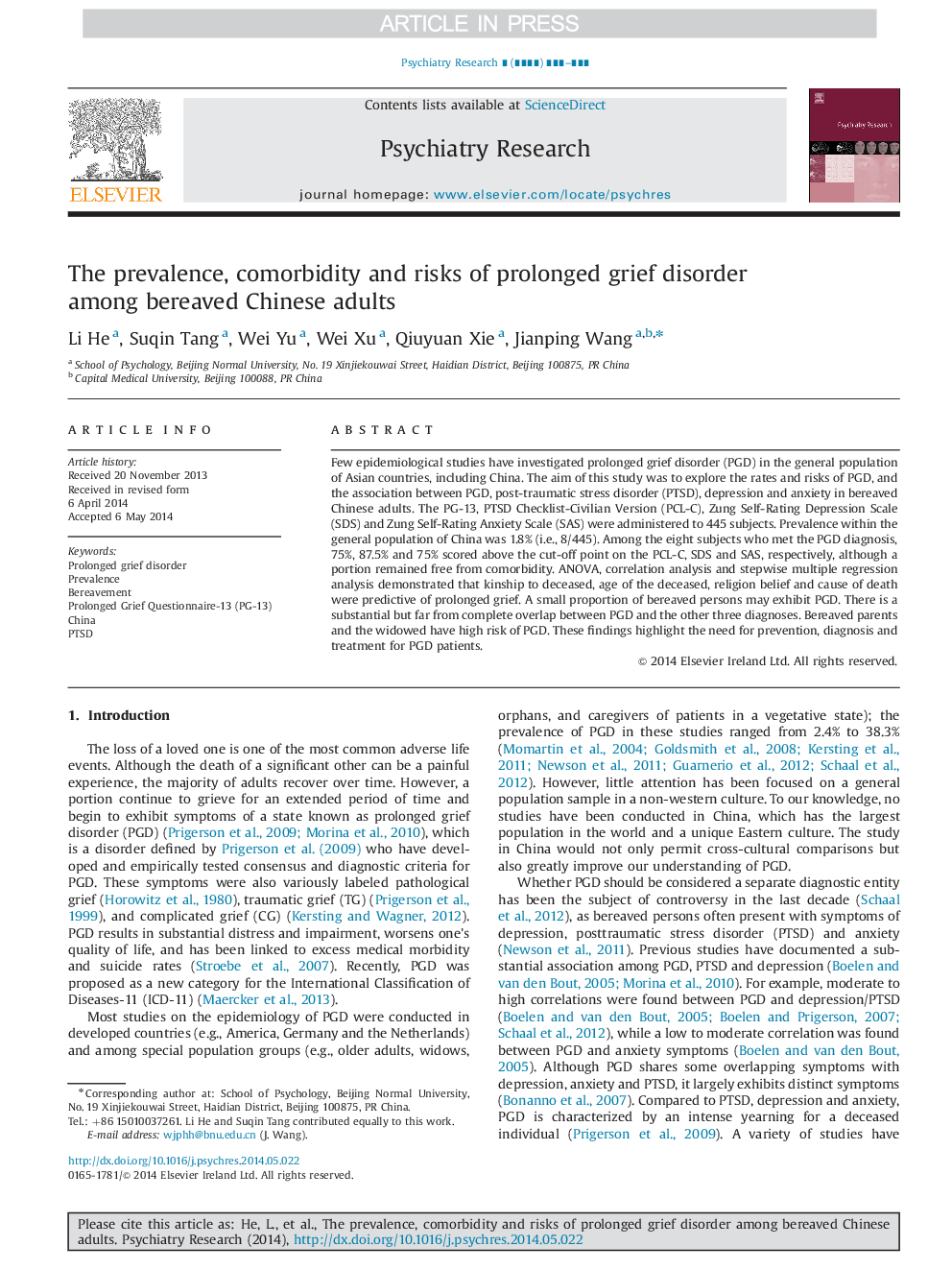| Article ID | Journal | Published Year | Pages | File Type |
|---|---|---|---|---|
| 10304256 | Psychiatry Research | 2014 | 6 Pages |
Abstract
Few epidemiological studies have investigated prolonged grief disorder (PGD) in the general population of Asian countries, including China. The aim of this study was to explore the rates and risks of PGD, and the association between PGD, post-traumatic stress disorder (PTSD), depression and anxiety in bereaved Chinese adults. The PG-13, PTSD Checklist-Civilian Version (PCL-C), Zung Self-Rating Depression Scale (SDS) and Zung Self-Rating Anxiety Scale (SAS) were administered to 445 subjects. Prevalence within the general population of China was 1.8% (i.e., 8/445). Among the eight subjects who met the PGD diagnosis, 75%, 87.5% and 75% scored above the cut-off point on the PCL-C, SDS and SAS, respectively, although a portion remained free from comorbidity. ANOVA, correlation analysis and stepwise multiple regression analysis demonstrated that kinship to deceased, age of the deceased, religion belief and cause of death were predictive of prolonged grief. A small proportion of bereaved persons may exhibit PGD. There is a substantial but far from complete overlap between PGD and the other three diagnoses. Bereaved parents and the widowed have high risk of PGD. These findings highlight the need for prevention, diagnosis and treatment for PGD patients.
Related Topics
Life Sciences
Neuroscience
Biological Psychiatry
Authors
Li He, Suqin Tang, Wei Yu, Wei Xu, Qiuyuan Xie, Jianping Wang,
